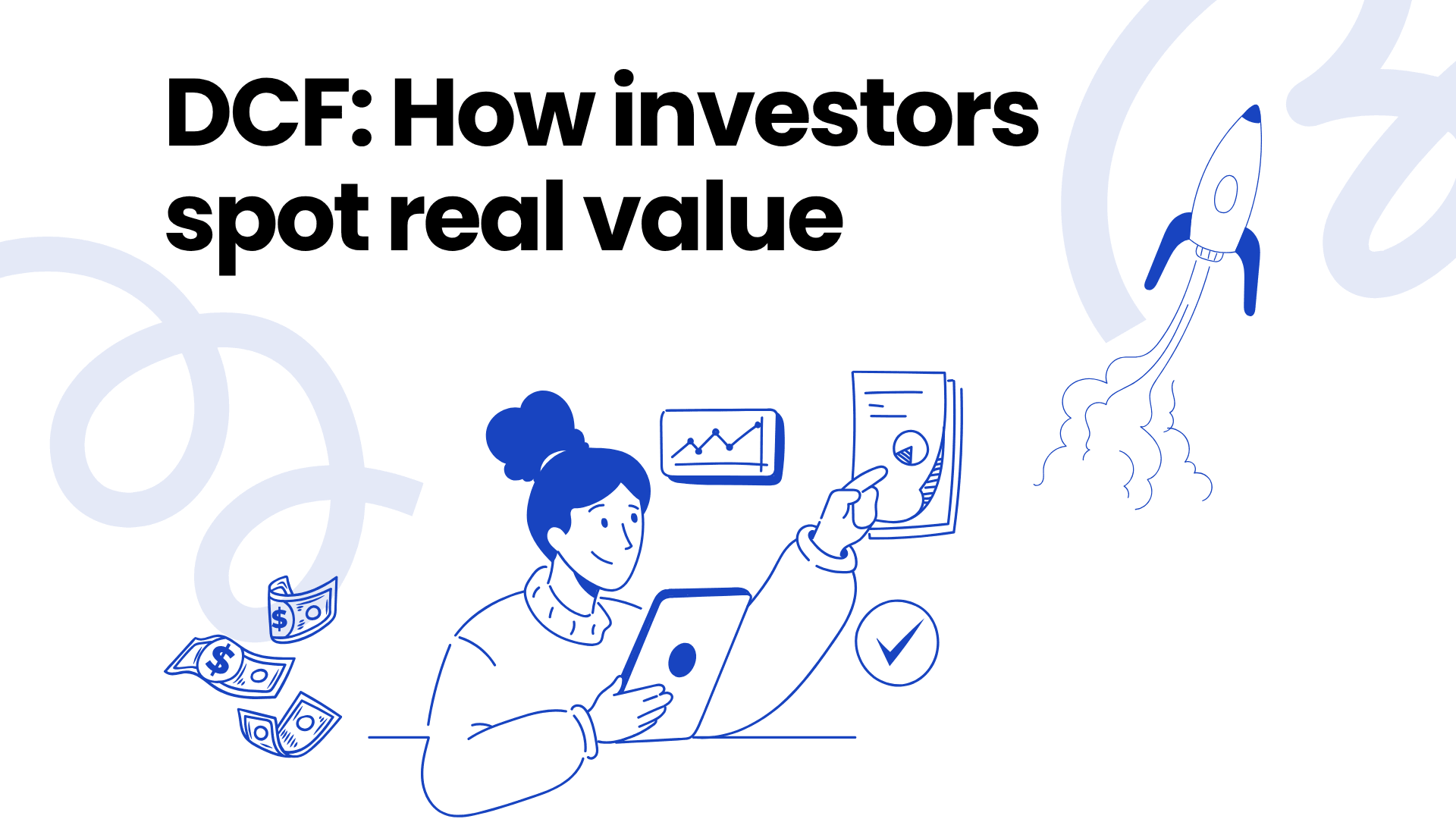
What is DCF? The Valuation Method Investors Actually Trust
If you’ve ever wondered how investors figure out what a business is really worth, beyond the buzz, branding, or user numbers, the answer often lies in three letters: DCF.
Short for Discounted Cash Flow, DCF is one of the most widely used valuation methods in finance. And no, it’s not just for Wall Street pros. Founders, startup operators, and investors all rely on it to understand a company’s true value based on what really matters: future cash flow.
Let’s simplify this powerful concept.
What is DCF
Discounted Cash Flow (DCF) is a method used to estimate the value of a business based on the cash it’s expected to generate in the future.
In plain terms: it’s a way to figure out what your startup is worth today by looking at how much money it might make tomorrow — and adjusting that future money to account for time, risk, and uncertainty.
Because let’s face it — a rupee (or dollar) today is more valuable than that same rupee five years from now.
Why Investors Love DCF
Unlike valuation shortcuts like revenue multiples or gut-feel estimates, DCF digs deeper. It’s focused on fundamentals — not fluff.
Here’s why DCF is often preferred:
- It reflects the actual earning power of your business
- It adjusts for risk — the riskier your business, the more conservative the value
- It offers a long-term perspective — perfect for founders building sustainable ventures
In other words, it’s not about what’s hot today. It’s about what your company can really deliver over time.
When Should Startups Use DCF?
DCF works best when your business has — or will soon have — a somewhat predictable cash flow. That means you’re past the pure idea stage and can reasonably forecast where your revenues and costs are headed.
It’s especially helpful when:
- You’re preparing for a funding round
- You want to negotiate your valuation with confidence
- You’re exploring exit scenarios or acquisitions
- You simply want to understand your business’s financial trajectory better
Even if your projections aren’t perfect, the exercise of thinking this way can help you see your business like an investor does.
What Makes DCF Powerful (and Tricky)
DCF is considered one of the most insightful valuation tools — but it’s not bulletproof.
It’s powerful because:
- It’s grounded in real business performance
- It forces founders to focus on profitability, not just growth
- It encourages long-term thinking and sustainable planning
It’s tricky because:
- It relies heavily on assumptions, like how much you’ll grow or what margins you’ll achieve
- It can change wildly based on small changes
- It doesn’t always reflect market sentiment, especially in fast-changing industries
That’s why investors usually pair DCF with other methods — like market comps or precedent transactions — to get a fuller picture.
DCF vs. Other Valuation Methods
There’s no one-size-fits-all approach to valuation. Different methods serve different goals:
- Revenue Multiples: Quick and common in fast-growth sectors
- Comparable Company Analysis: Based on how similar startups are valued
- Precedent Transactions: Based on recent deals in the space
- DCF: Deep-dive into future cash potential
Each has a role to play. But if you’re aiming to show that your business is built to last, DCF is often the most compelling narrative.
So, Is DCF Right for Your Startup?
It depends.
If you’re still pre-revenue or in the early MVP stage, a DCF model might not be practical. But once you have some traction and visibility into your numbers, it becomes a valuable tool — both for you and your investors.
You’ll be able to:
- See how strategic decisions impact long-term value
- Back your valuation with logic and data
- Plan your fundraising with greater clarity
Remember: DCF isn’t just a spreadsheet exercise. It’s a mindset shift — from chasing growth at all costs to building something financially sound and future-ready.
Final Thoughts
DCF may sound like a concept reserved for finance geeks, but it’s actually one of the most foundational tools in serious startup finance.
Whether you’re fundraising, scaling, or preparing for an exit, understanding DCF helps you think like an investor, plan like a CFO, and build like a founder with a long game in mind.
And in today’s world of flashy pitches and inflated valuations, that kind of thinking sets you apart.
